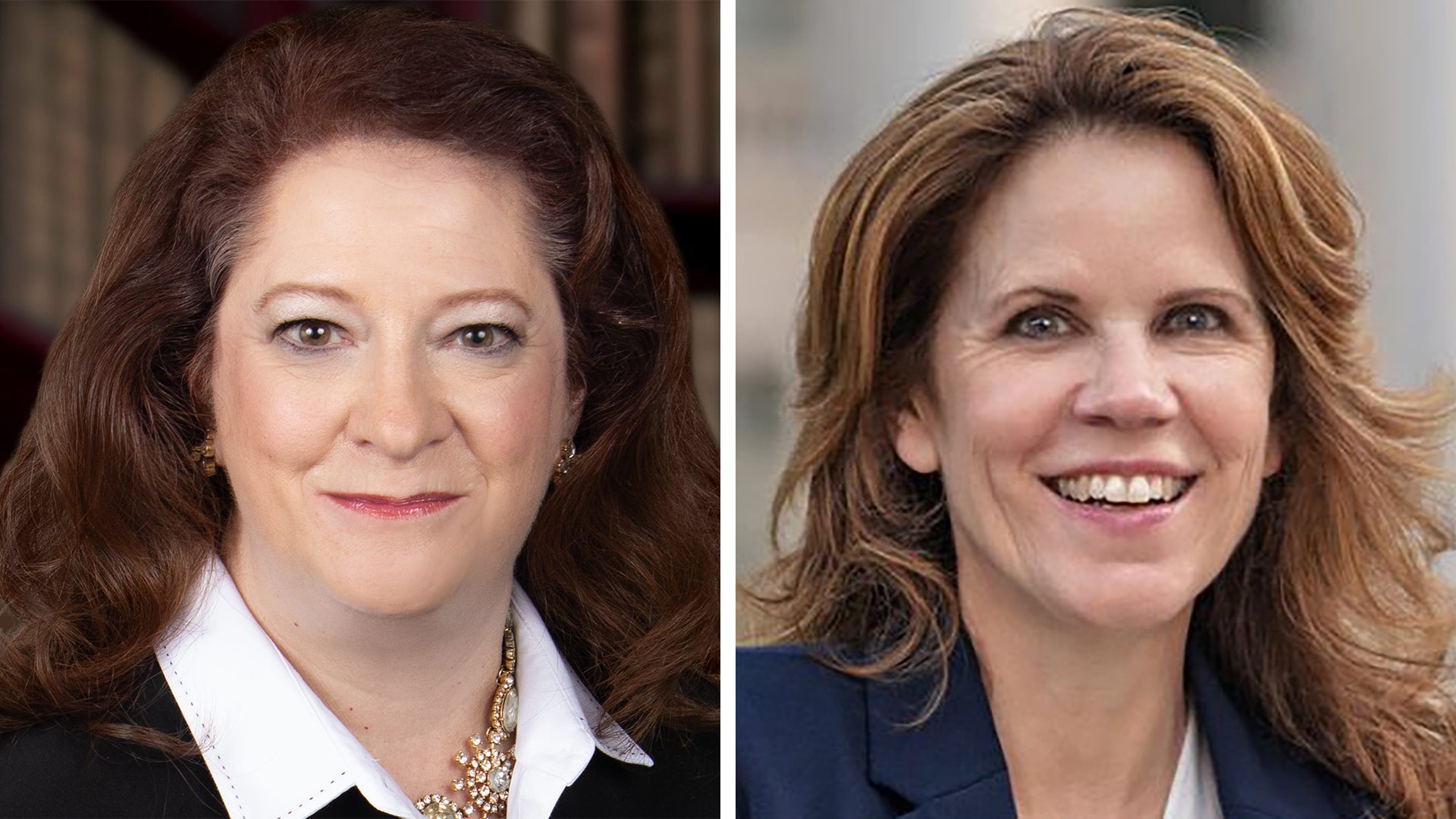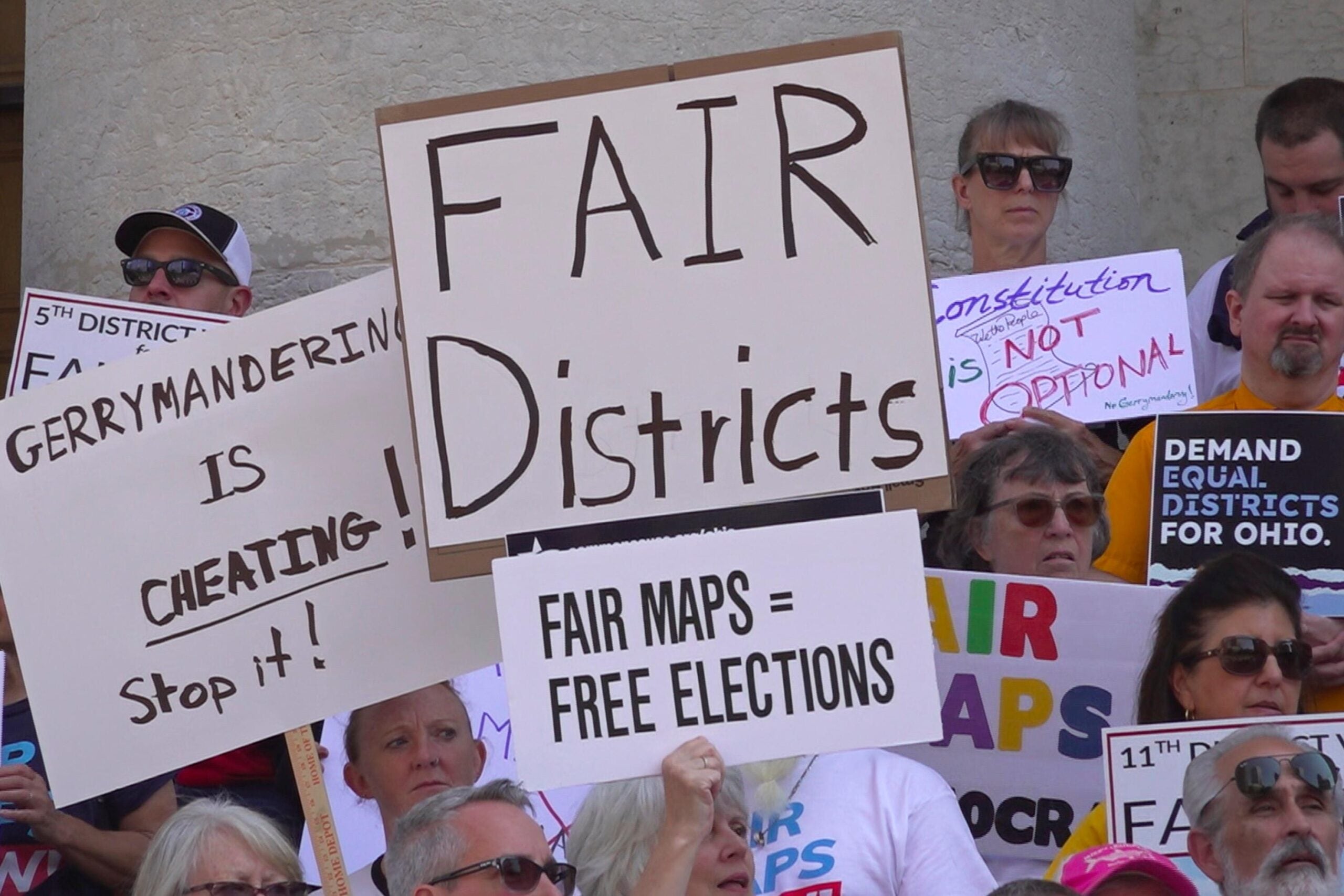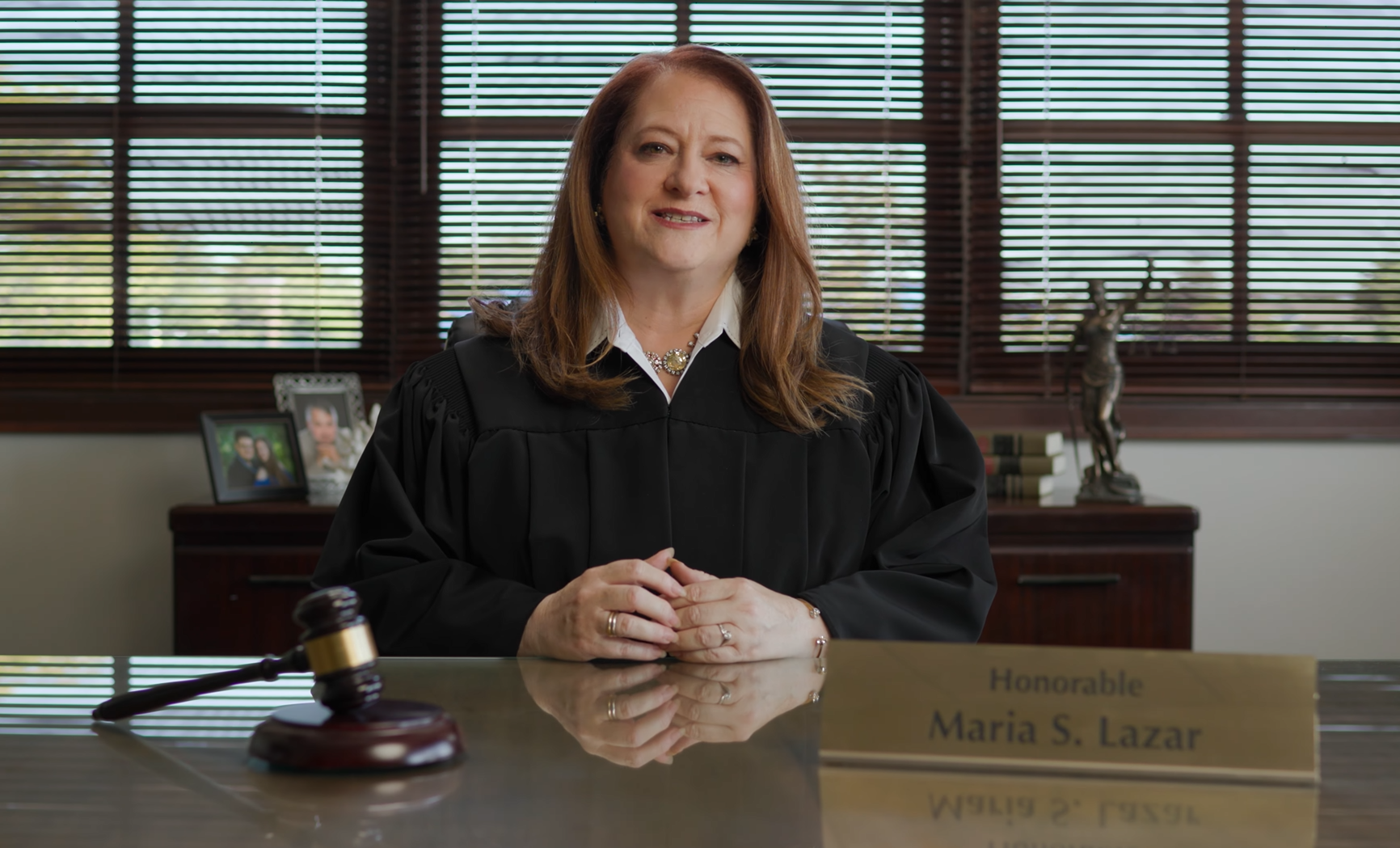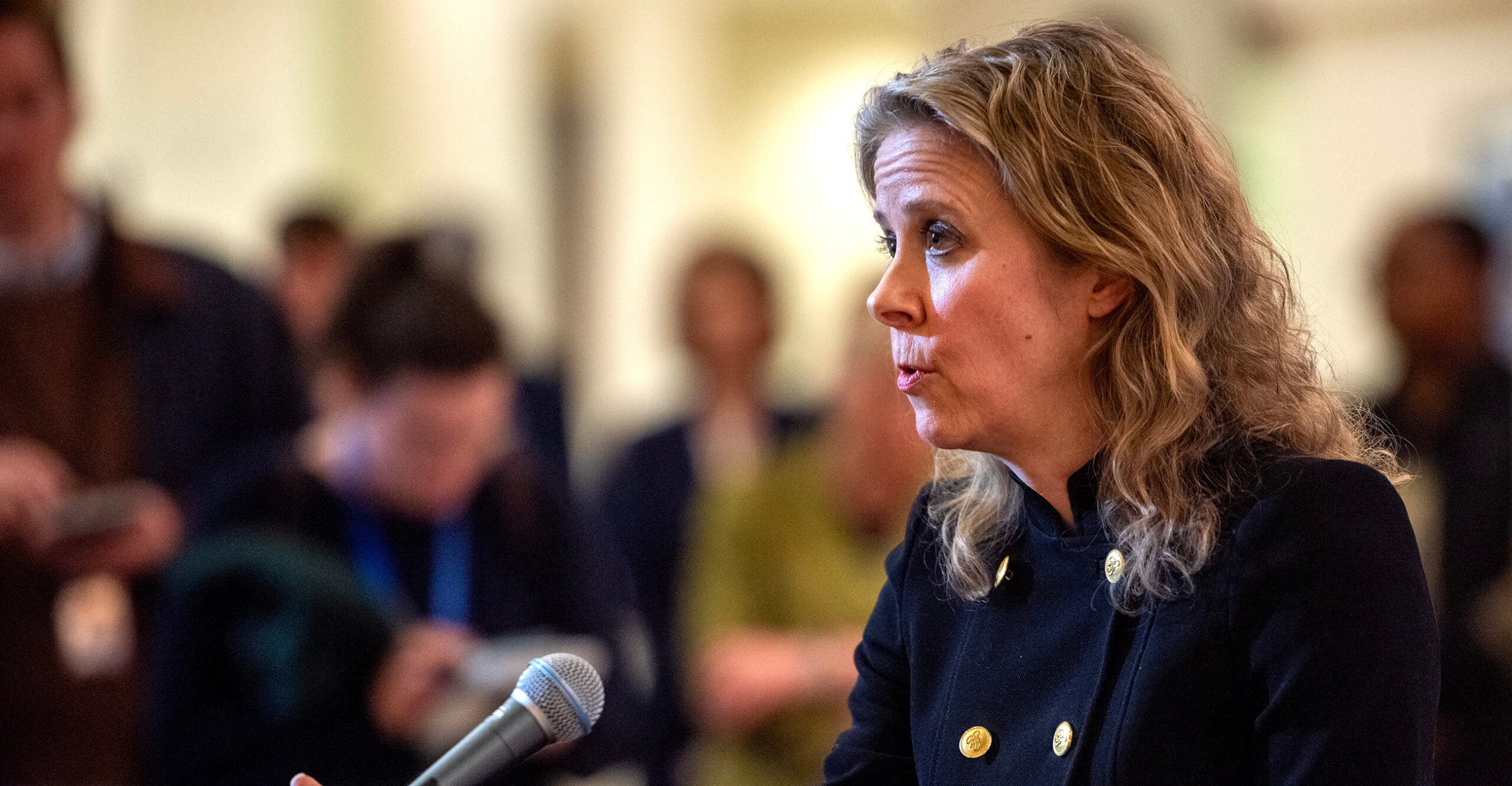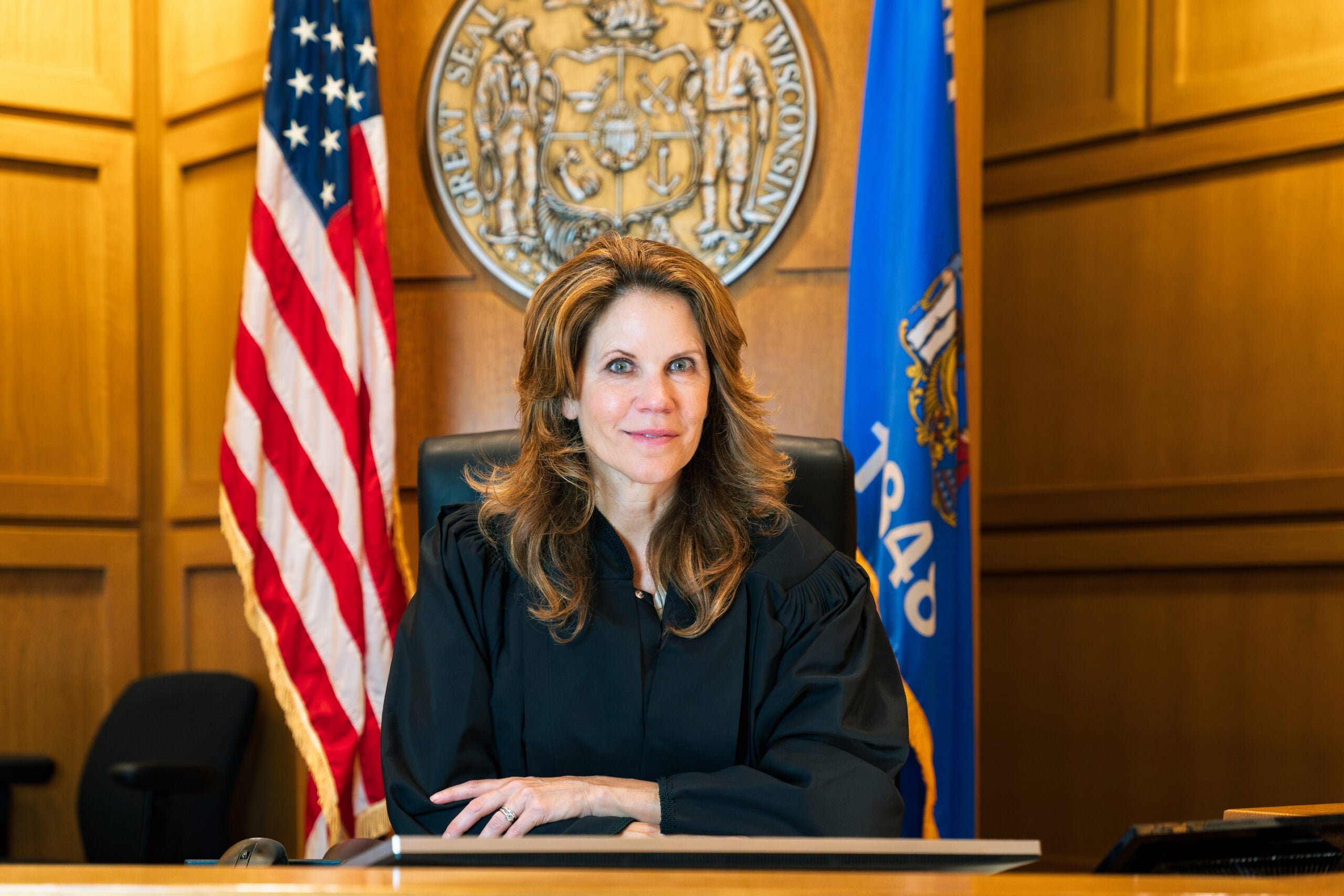When Wisconsin residents cast their ballots in Tuesday’s primary, many of them will also vote in a race for circuit court judge, an office that’s receiving more attention — and money — from political operatives.
Those races don’t get as much attention as statewide offices, and many still go uncontested. Only 10 judges are facing opponents this spring, out of more than 50 races.
But the winners can be hugely consequential. In recent years, circuit court judges have rendered decisions that changed abortion access and election rules for the whole state.
News with a little more humanity
WPR’s “Wisconsin Today” newsletter keeps you connected to the state you love without feeling overwhelmed. No paywall. No agenda. No corporate filter.
Just a year after a Wisconsin Supreme Court race shattered national spending records, these officially nonpartisan offices are also one area where political backers can aim their donations if they want to sway a court to a more liberal or conservative bent.
“I think there’s just been a strategic decision from special interests, that you can be able to get victories through the judiciary,” said Nick Ramos, who directs the Wisconsin Democracy Campaign, which tracks money in politics.
In just the last two years, for example, a circuit court judge in liberal-leaning Dane County Circuit Court ruled that a Civil War-era state law, previously interpreted to ban abortion in the state, allows for consensual abortion. In conservative-leaning Waukesha County, a circuit court judge ruled against the practice of using drop boxes to collect absentee ballots.
Groups with interests in particular outcomes in high-profile cases like those could be motivated to support judiciary campaigns with big donations, said Ramos.
“There are definitely interests that are trying to make sure that they get their candidates in some of these lower courts, because there’s opportunity for groups … whatever their particular interests are, to be able to essentially shop around,” he said. “If they get their candidate installed, they can perhaps get the right case to that candidate and be able to get the result they want.”
Individual and group donors from across the political spectrum have contributed to Wisconsin judicial races this year. Among the most notable contributors is Fair Courts America, a political action committee funded by billionaire businessman and Republican megadonor Richard Uihlein, that focuses on judiciary elections.
According to public documents, Fair Courts paid Oconomowoc-based Battleground Strategies about $68,000 in the past few weeks to produce campaign materials in at least five races.
That strategy group is helmed by Stephan Thompson, a former executive director of the Republican Party of Wisconsin and campaign strategist who oversaw former Gov. Scott Walker’s 2014 victory. It produced marketing materials for circuit court campaigns in Kenosha, La Crosse, Racine, Walworth and Winnebago counties, according to expenditure reports.
Thompson didn’t respond to WPR’s request for an interview, but has posted on social media about the importance of judicial races.
“Candidate recruitment in circuit court and DA races is every bit as important as state legislative seats,” he tweeted.
The Democratic Party of Wisconsin has also spent money on circuit court races, with a sizeable infusion of more than $18,000 into the Racine County race, according to public filings. They gave much smaller in-kind donations, worth between $17.71 and $70.83, to at least four other court campaigns Columbia, Kenosha, Milwaukee and Winnebago counties.
Spending on circuit court races comes as Supreme Court spending has skyrocketed
None of these races hold a candle to the kind of money that was spent on last spring’s Wisconsin Supreme Court race. That race, which tilted the ideological balance of the court to a liberal majority for the first time in 15 years, brought in about $56 million from both inside and outside Wisconsin — shattering records.
That included about $10 million from the Democratic Party of Wisconsin in support of Justice Janet Protasiewicz, who ultimately won. Those contributions later became the source of attacks from Republicans, who said they amounted to buying the seat for Democratic party interests.
State and federal law allows for that kind of political party spending on court races, and both sides engage in judicial campaigning.
Other interest groups that get involved, too. Wisconsin Manufacturers and Commerce, an industry group that generally backs conservative candidates, and A Better Wisconsin Together, a progressive group with union ties, have spent big dollars on state court campaigns before.
Big money going into court cases can affect people’s perception of an impartial judiciary, argued Ramos.
“It definitely calls into question … are they really playing to the interests that help them get to this seat, and not really focusing on what the actual job is? Or are they able to remain impartial and apply the letter of the law to the facts,” he said.
His group advocates for changes to campaign finance rules that would make it more difficult for outside groups to flood these races.
In the absence of those changes, Ramos added, Wisconsinites can expect another hugely expensive supreme court battle next year when liberal Justice Ann Walsh Bradley seeks reelection. Already, former Republican Attorney General Brad Schimel has announced he’s running for the seat, setting up what will amount to another battle for the ideological balance of the state’s highest court.
Wisconsin Public Radio, © Copyright 2026, Board of Regents of the University of Wisconsin System and Wisconsin Educational Communications Board.

